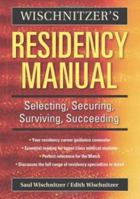Learn to Quilt with Panels: Turn Any Fabric Panel into a Unique Quilt
Select Format
Select Condition 
More by Saul Wischnitzer
Book Overview
Explore all the possibilities you have when you work with fabric panels with this guide. Learn to Quilt with Panels takes quilters on a creative journey showing them step by step how to use panels in quilts or as design elements simply by cutting them apart and incorporating them into quilt setting. This book shows options the quilter may not have thought of and also teaches how to start with an idea, then graph and design it, actually do the math, and finally complete it. This book is destined to be a go-to resource.
Format:Paperback
Language:English
ISBN:1573675806
ISBN13:9781573675802
Release Date:September 2014
Publisher:Annies
Length:80 Pages
Weight:0.68 lbs.
Dimensions:0.2" x 8.3" x 10.6"
You Might Also Enjoy
Customer Reviews
8 customer ratings | 5 reviews
There are currently no reviews. Be the first to review this work.











































